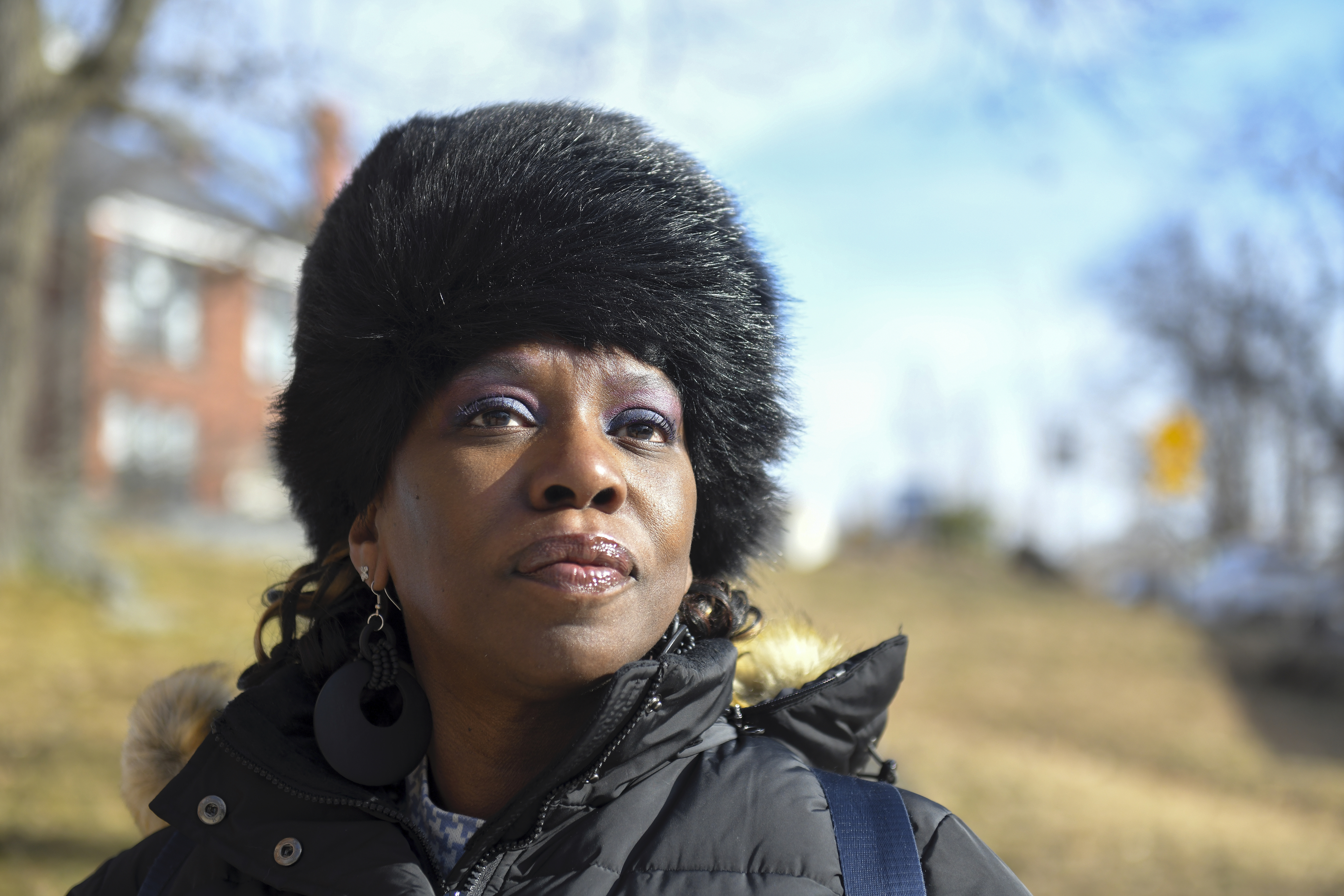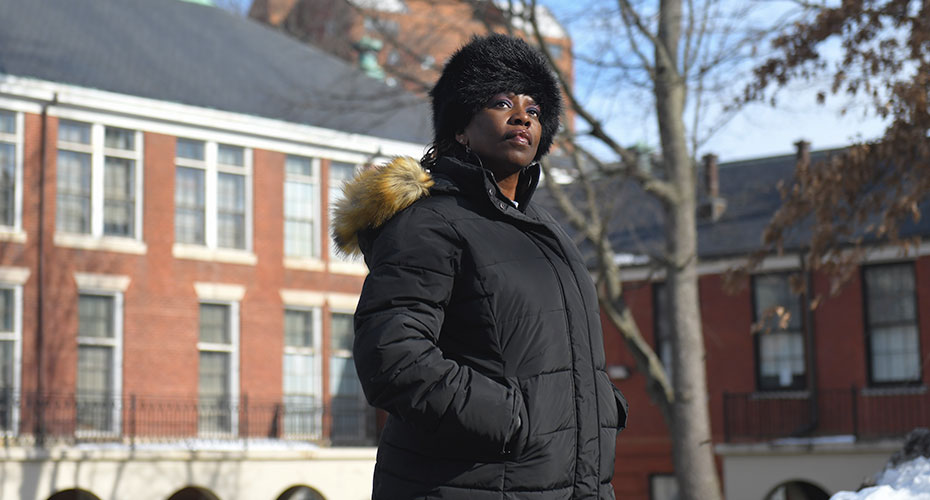Feb 27, 2025
Finding support, treatment and recovery
Cathy Guild was 32 years old when she knew she needed to make a change.
She had been struggling with addiction for more than a decade, using drugs to cope with the depression and anxiety she had experienced since she was a teenager.
“I said, ‘What am I doing to myself?’” recalls Guild.
She turned to The Dimock Center in Boston, which had been her health care provider since she was a girl.
“I told the nurse, ‘I’m ready to get clean,’ and I cried,” Guild remembers. “She held me, and I never picked up another drug again after that.”
It’s been 25 years since Guild completed Dimock’s detox program and started individual psychotherapy sessions to address her mental health conditions, which began as a young adult.
“Growing up I always thought I was too skinny, too ethnic-looking, too dark. I grew up in the projects and was bused to a school in the suburbs. It was not easy. I got made fun of a lot, so my confidence was not great,” she said. “I was an easy candidate to use drugs because my only goal was to get out of school. Drugs became my goal during that season of my life. Drugs became my escape.”
Now, after 25 years in recovery, Guild, a senior administrative assistant at Blue Cross Blue Shield of Massachusetts, has new goals: “I own my own house, and I have a wonderful job. I have close relationships with my three children. In the future, I want to start a blog for people who feel uncomfortable socially like I did as a teenager. I also want to own my own business with a social mission to create safe spaces where children and teens can come together and socialize in a supportive environment.”
Watch Cathy's story here
Treating dual diagnoses
Like Guild, nearly 8 million Americans struggle with a dual diagnosis of substance use and a mental health condition such as depression.
“These conditions do run together,” said Dr. Greg Harris, a practicing psychiatrist and senior medical director, behavioral health, at Blue Cross Blue Shield of Massachusetts. “Often, people who are depressed turn to a substance like alcohol to help, but it can wind up hurting them more. Alcohol is a depressant, and it can disrupt a person’s sleep and cause insomnia, which feeds into their depression. We see similar complications with other substances.”
Because the conditions often reinforce each other, patients with dual diagnoses should receive treatment for both substance use and mental health conditions.

- Dr. Greg Harris
Blue Cross covers a variety of treatment programs for dual diagnoses. The not-for-profit health plan also supports clinical practices that offer integrated primary care and psychiatric collaborative care.
“It’s rare for patients with substance use disorder not to have a mental health condition,” said Olivia Amadon, a licensed independent clinical social worker and program manager of adult behavioral health and outpatient addiction recovery services at Dimock. “People often turn to substances because of struggles with trauma, depression and anxiety. These conditions really go hand in hand.”
Health providers like Dimock take this into account.
“We offer highly specialized behavioral health care that is fully integrated into our adult medical clinic,” Amadon said. “We think our model is really destigmatizing, because the patient is able to talk to their primary care provider — someone they trust — about what they are experiencing, and our behavioral health team is able to coordinate with their medical team.”
The health center provides several substance use programs that can be customized to patients’ needs, including an outpatient day program, a residential program, a medication-assisted treatment program, an on-site detox hospital, and outpatient groups focused on topics such as anger management, parenting and relapse prevention, along with a team of clinicians to address behavioral health conditions.
Most importantly, Amadon said, is the trust Dimock staff build with patients. “Being rooted in the community is really important. Many patients have grown up around Dimock. There’s this trust. It’s good to be able to meet people where they’re at—quite literally.”
That’s why Guild encourages others to seek help. “The Dimock has done so much for me and been with me through every step of my life. They’re not just my health center, they’re my extended family, and your family doesn’t let you go.”

Helping others
Today, Guild sits on Dimock's Health Services Board—a group of leaders including a majority of Dimock patients—where she oversees and supports the health center’s programs and services. She continues to work hard to sustain her recovery and mental health by attending regular therapy appointments and staying connected with her sponsor of more than 25 years. And she hopes her story will help others.
“The biggest thing about recovery is that you always judge yourself and feel others judge you, but I realized that it’s okay to ask for help, that I don’t have to hold all of that stuff in—my fears, insecurities, feeling like I’m a failure, the burden of being the best mom,” she said. “There’s someone I can tell all that to and not feel judged — that’s my comfort zone.”
She offers simple advice for others who are struggling with the complex issues of substance use and mental health: “Find someone you feel comfortable talking to.”
I want people who have gone through trauma, abuse, dependency to know that it’s okay to talk about it so they can let it go and get on to the next part of their life.
Are you a Blue Cross Blue Shield of Massachusetts member who is looking for a substance use or mental health treatment? Call 1-888-389-7764 or use our Find a Doctor & Estimate Costs tool to find licensed therapists and treatment programs.
PHOTO OF CATHY GUILD BY FAITH NINIVAGGI, PHOTO OF DR. GREG HARRIS BY MIKE GRIMMETT

